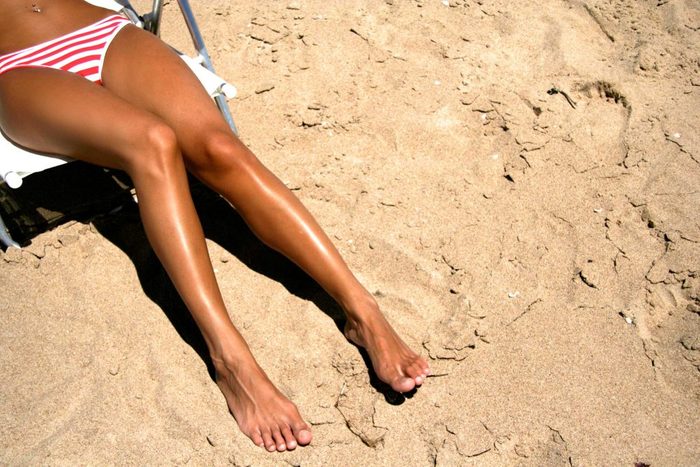
“I need to tan to get my daily vitamin D”
“There are safer ways to get vitamin D than lying in the sun. Ultraviolet light is a carcinogen, like cigarette smoke. Think of it this way: If someone said you could get vitamin D or some other nutritional supplement from smoking a cigarette, would you take up smoking? Why get mutations in your skin cells to get vitamin D? Instead, enjoy a sunny day by seeking shade, wearing protective clothing, and applying sunscreen. Ask your doctor about whether a vitamin D supplement is even necessary.” —Delphine J. Lee, MD, PhD, dermatologist and director of the Carolyn Dirks and Brett Dougherty Laboratory for Cancer Research and Department of Translational Immunology at John Wayne Cancer Institute in Santa Monica, CA
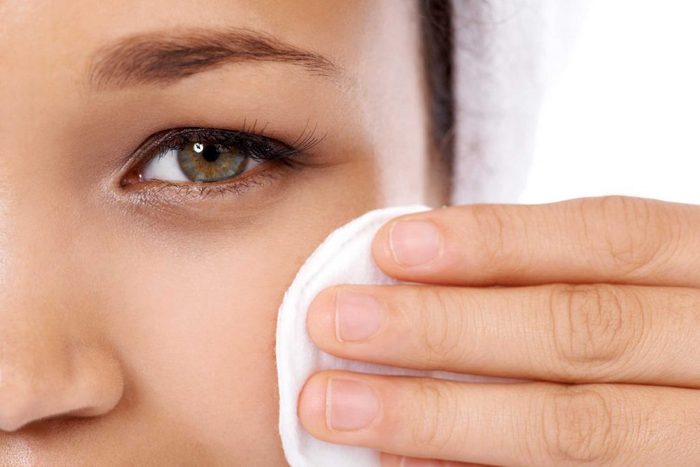
“Never, ever go to bed with your makeup on”
“Most women think terrible things will happen to their skin by not taking off their makeup before bed. But the reality is it’s usually not much of a problem. Think about it this way: What’s the difference between wearing the makeup on your skin for the eight hours that you’re sleeping as opposed to the 12 hours that you wear it during the day? There’s really not much of a difference, particularly if you sleep on your back. It is possible to get eye irritation from your pillow rubbing makeup into your eye but that’s very uncommon.” —Neal Schultz, MD, a dermatologist, host of DermTV.com, and creator of BeautyRx by Dr. Schultz
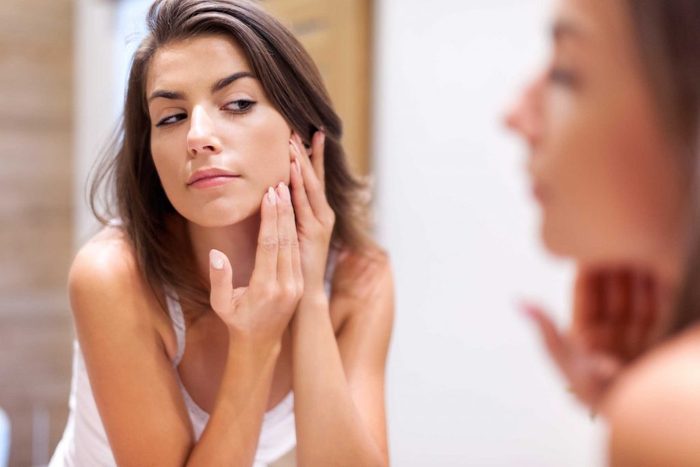
“Popping a zit will help it go away faster”
“Only pimples that have come to a white head are safe to extract. Even then, it is best to visit an aesthetician or other skin health professional to get a treatment and have these extractions done properly. Randomly squeezing papules (pimples that have not come to a head) can lead to infection and scarring. It is best to keep skin clean and hydrated and use products with either benzoyl peroxide, retinol, or salicylic acid to clear the skin overall.” —Jennifer Linder, MD, board-certified dermatologist and chief scientific officer for PCA SKIN. Don’t miss these home remedies for acne.

“A base tan will protect my skin from burning”
“Your skin cells see every tan or burn as damage to the cellular network, which signals your skin cells to repair the damage. Repeating this over and over throughout your lifetime causes cellular mutations, and can ultimately lead to skin cancer. This is why it’s important to always protect your skin with sunscreen.” —Ashley Magovern, MD, dermatologist and expert contributor/blogger for Livestrong.com, and medical director of Dermstore
(Here’s how you should apply sunscreen.)
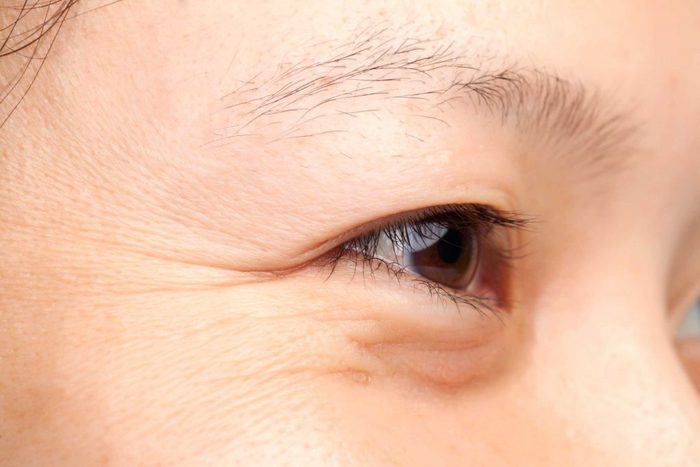
“Facial exercises will cure my wrinkles”
“I recently had a patient tell me she does daily ‘facial yoga’ exercises in order to tighten her skin and remove her wrinkles. This is not the first time that I have heard about this craze, and it simply is not possible to eliminate existing wrinkles on the skin. Actually, these exercises can aggravate the wrinkles that are present, due to the persistent movement of the facial muscles. Unfortunately, once wrinkles are formed there is no way to permanently erase them naturally.” —Xiomara Frans-Cuber, RN, celebrity dermatologic nurse
(Here are a few everyday habits that cause wrinkles.)
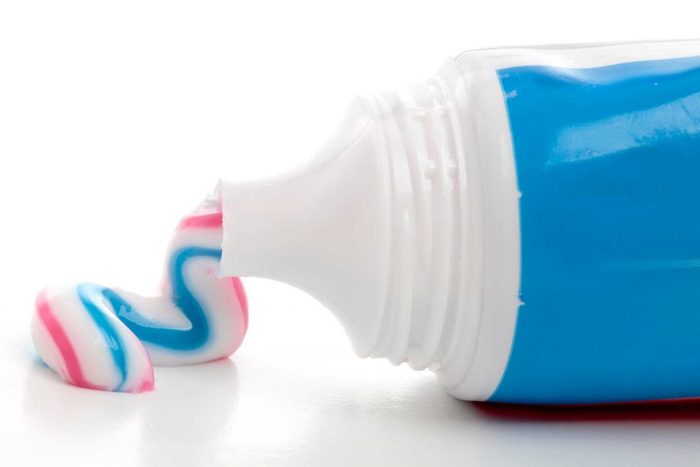
“Toothpaste will zap a zit”
“Many people use toothpaste as a home remedy to quickly reduce the size of the cold sore or pimple, but there is no real evidence that toothpaste can help either of these conditions. Some toothpaste contains hydrogen peroxide, which is in fact an antiseptic, so skin bacteria and virus levels may temporarily go down from its application. But other ingredients in toothpastes can irritate the skin and cause further breakouts.” —S. Manjula Jegasothy, MD, dermatologist and founder of the Miami Skin Institute
(Here’s how to use essential oils to cure acne.)
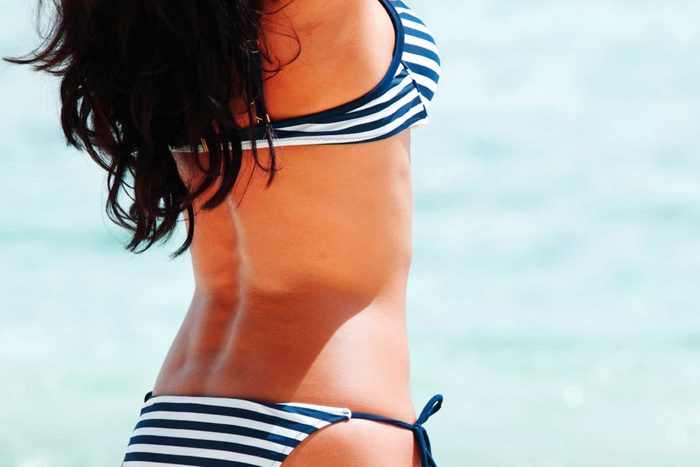
“You can’t get skin cancer under your swimsuit!”
“When the sun shines on one spot on your skin and does damage, that damage is transmitted via a very complex process throughout all of your skin, even to places that have never seen the sun. That’s why during a skin cancer check your dermatologist looks through your scalp and places where your bathing suit covers because no part of your skin is immune to melanoma. The reality is you can get skin cancer anywhere on your skin if you have had exposure to damaging ultraviolet radiation. SPF from head to toe is non-negotiable.” —Neal Schultz, MD.
(Here are other places you should check for skin cancer.)
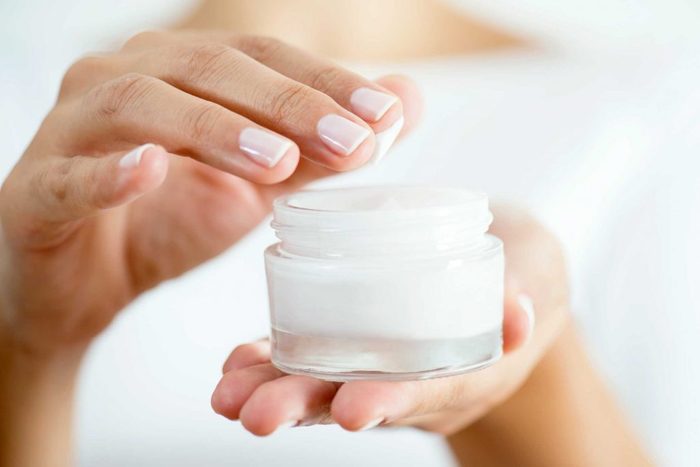
“Moisturizers never work for me; my skin is always so dry”
“Sometimes moisturizers can’t do their job well because aging and/or sun-damaged skin has too many layers of dead cells built up, so the moisturizers can’t penetrate. A little gentle exfoliation should do the trick, then you moisturize.” —Ashley Magovern, MD
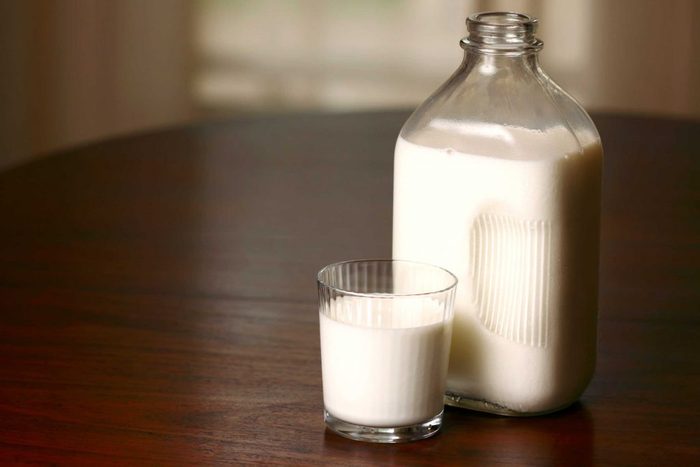
“My acne has nothing to do with what I eat”
“There are now several studies indicating that acne can be related to milk and to high-glycemic diets. My experience is that many who suffer with acne can be helped with a customized diet and the right supplements. It is true that one person may be able to eat the foods that cause another to break out without getting any acne herself.” —Alan M Dattner, MD, dermatologist and author of Radiant Skin from the Inside Out.
(Here are other reasons you’re having a breakout.)
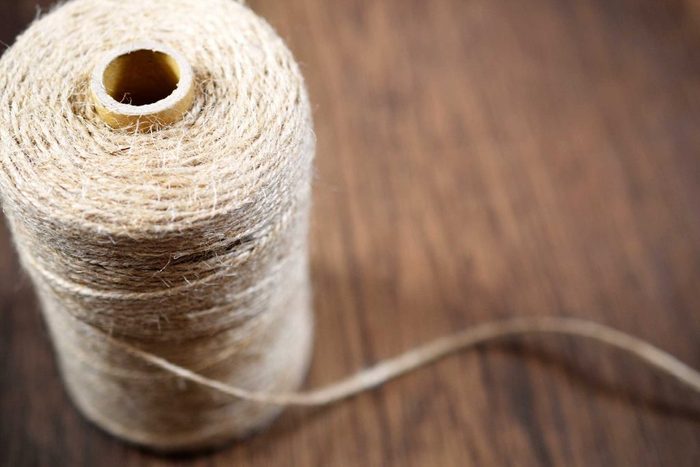
“Tying a string tightly around a skin growth will make it die and fall off”
“This was a very common old wives’ tale, especially among older generations. While this may work for certain benign skin tags, dermatologists shudder at this old-fashioned treatment. Not only can this cause excessive bleeding at the site, requiring a doctor’s attention, it may also cause incomplete removal of the lesion and permanent scarring. Even worse, it may delay the diagnosis of something more serious, such as skin cancer, which requires diagnosis by a board-certified dermatologist.” —S. Manjula Jegasothy, MD
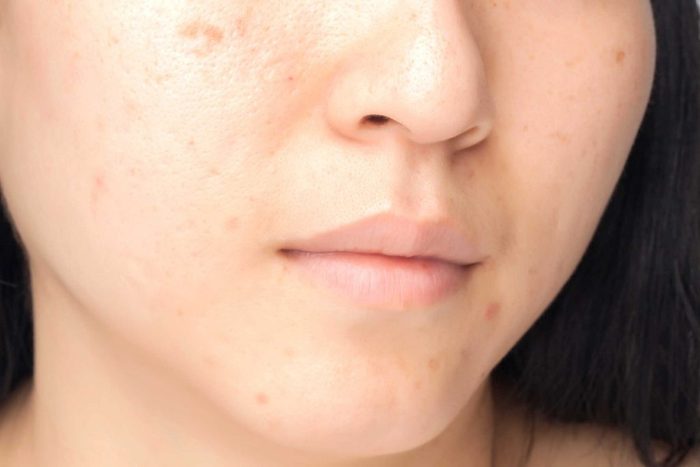
“I can get rid of dark spots with a little soap and elbow grease”
“Excess pigmentation in the skin is a result of many factors, but inflammation, typically from the sun, is the main cause of these spots or dark patches. Trying to scrub them off can make them worse. Hyperpigmentation needs to be treated gently with ingredients designed to lighten and even out skin tone. Sunscreen is also critical, as it will protect the skin from further sun damage.” —Jennifer Linder, MD
(Here’s how to reduce the damage of sunspots.)
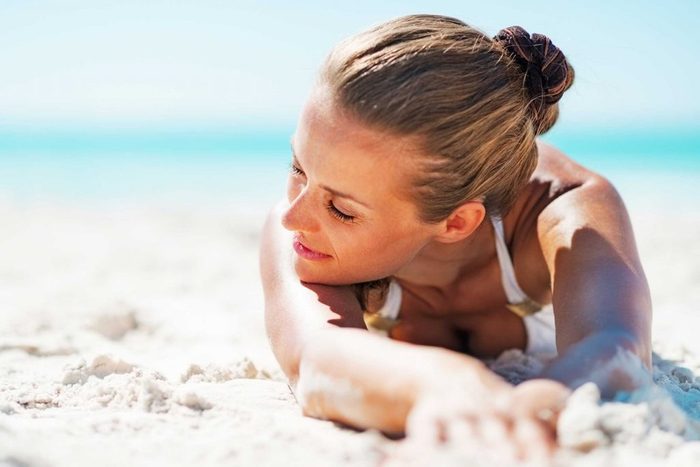
“Tanning clears up acne”
“A tan can briefly mask redness and irritation from acne, but there is no evidence-based research supporting the idea that tanning can help clear up acne. In fact, tanning can make acne-prone skin worse as it leads to dry, irritated, and burned skin. Not to mention, tanning promotes sweating, and excessive sweating leads to clogged pores, which ultimately can lead to more acne. Tanning can also lead to hyperpigmentation of the skin, making preexisting acne scars appear darker. ” —Xiomara Frans-Cuber, RN.
(Here’s how to get rid of acne scars.)
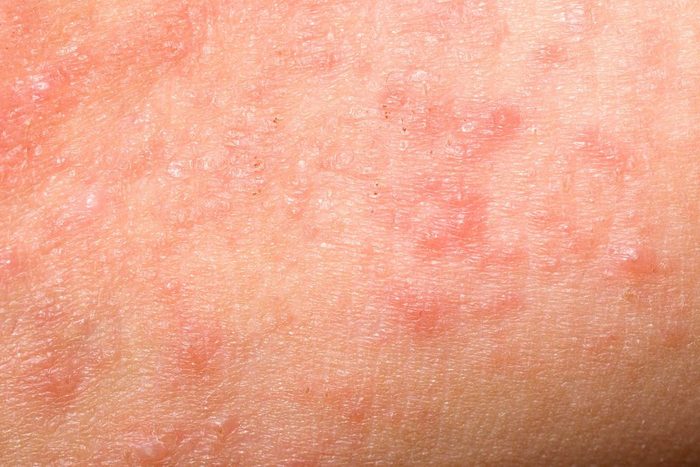
“Any red bumps on my face have to be acne, right?”
“Rosacea can seem like acne as both conditions can share common features, like redness and pimples. There are three simple differences between acne and rosacea: age of onset, location, and symptoms. Acne can occur at any age, but is most common in teens; rosacea typically occurs after age 30. While both acne and rosacea can appear in the central portion of the face, acne also commonly appears along the hairline and jawline, body, arms, and back, whereas rosacea can irritate the eyes. Blackheads are common with acne, but not typically seen in rosacea.” —Dendy Engelman, MD, a board-certified dermatologic surgeon, associate at Manhattan Dermatology and Cosmetic Surgery, and a Galderma consultant.
(See other skin conditions that look like acne but aren’t.)
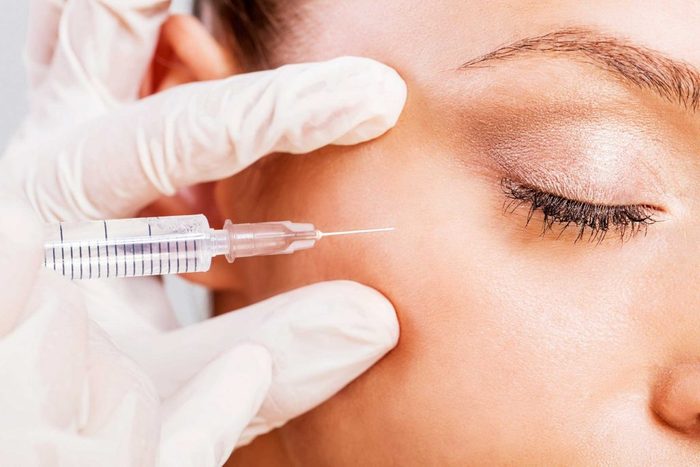
“Botox makes you numb”
“This misconception is so popular it was even part of a comedy bit on the TV show Frasier but the truth is that all neurotoxin injections, including Botox, Dysport, and Xeomin, only block the nerve that leads to the muscle fiber, not the sensory nerve that mediates touch and sensation. If you are experiencing a mild degree of numbness after getting Botox, that may be related to the numbing cream and/or the ice pack. If severe or prolong numbness persists, that may be a signal of a more serious, unrelated condition to your Botox treatments, and I would recommend proceeding to the nearest ER immediately to rule out the possibility of something more serious.” —S. Manjula Jegasothy, MD
(Check out other botox myths to stop believing.)
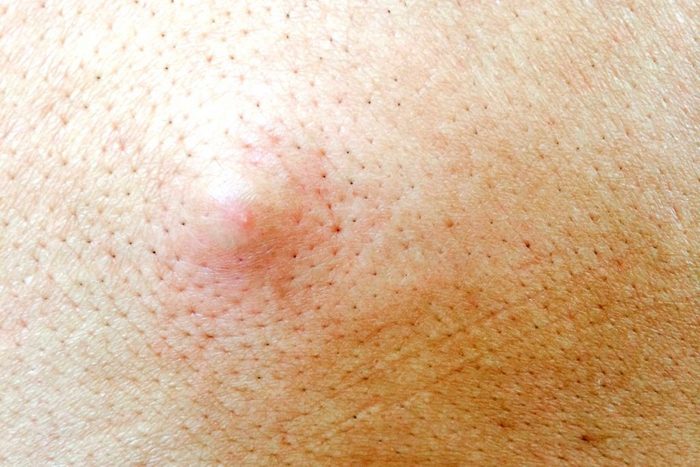
“I can pop a cyst just like I pop a zit”
“Most lesions that patients call ‘cysts’ are what we call ‘epidermal inclusion cysts.’ These are essentially deep pockets of dead skin cells that get slowly bigger with time and require surgery to remove. ‘Popping’ these hurts and drains the contents temporarily. The cysts typically fill back up with time. Instead, a simple initial surgical removal would cure the problem.” —Steve Stahr, MD, board-certified dermatologist in New Braunfels, TX.
(And whatever you do, don’t ever pop a pimple in the “danger triangle.”)
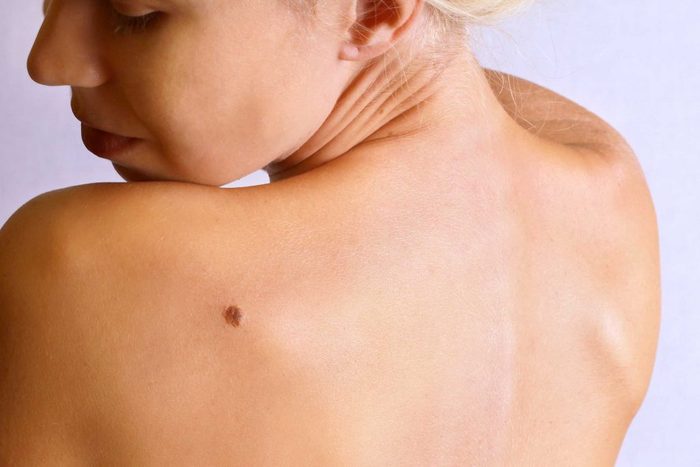
“When it comes to cancer, I only have to worry about spots that stick up”
“While it is true that advanced melanomas are often raised above the skin, many melanomas, particularly early melanomas, are flat. There are also many benign growths that begin to appear on the skin, especially after you turn 40, that are raised but have no malignant potential. A yearly skin exam by your dermatologist is the best way to be sure that all of your ‘spots’ are OK.” —Lydia Evans, MD, board-certified dermatologist based in Chappaqua, New York
(Check out these things that dermatologists do every summer.)
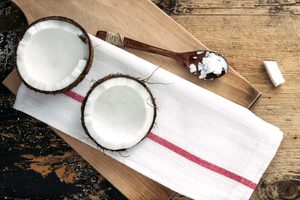
“Coconut and olive oil are great natural moisturizers”
“Coconut oil and olive oil might not be the best products to put on your skin. For some people, coconut oil can be an effective moisturizer that absorbs fairly well into the skin, providing light to moderate hydration and softening in one quick, inexpensive step. But coconut oil is also comedogenic, which means it can cause clogged pores, pimples, blackheads, or whiteheads. It’s also not the intensive moisturizer some people claim. If you need a lot of hydration, coconut oil simply won’t cut it.” —Josie L. Tenore, MD, of FreshSkin in Highland Park, Illinois.
(Also, here’s why one Harvard professor is calling coconut oil “pure poison.”)

“SPF 80 means I’m covered for the day”
“SPF is measured in a laboratory setting, but real-life application is much different. The recommendation for sunscreen usage is one ounce, or enough to fill a shot glass, for the exposed areas on the body with reapplication every two hours and after swimming or sweating. Many sunscreens come in eight-ounce bottles, which means for a full day of protection you need to use half a bottle of sunscreen. People simply don’t do this. When you don’t use the recommended amount, the SPF goes down dramatically: People think they are getting an SPF 30 but are probably getting an SPF 5. This is why I always recommend the highest SPF for my patients.” —Bobby Awadalla, MD, a skin cancer surgeon based in Orange County, CA.

“I look sick if I’m pale; a tan looks healthier”
“There is nothing healthy about tanning. Both sunlight and indoor tanning beds emit ultraviolet light that causes skin cancer, the most common cancer in the United States.” —Delphine J. Lee, MD, PhD
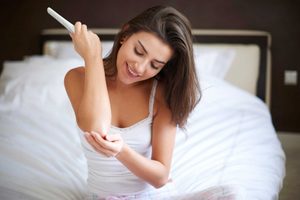
“Perfect skin comes in a jar”
“We have been lead to believe that skin health comes from using topical creams or lotions. However, there is a lot of evidence that drinking plenty of water and eating certain foods can help not only the appearance of our skin but how it functions. Just like we eat protein to feed our muscles after a workout, many foods can help feed our skin. Some of these include tomatoes, grapes, pomegranates, green tea, and even chocolate as long as it has more than 70 percent cocoa content.” —Bobby Awadalla, MD.

“I work in an office all day; I don’t need sunscreen”
“You definitely need protection anywhere there are windows, like in your car and office. Glass only blocks UVB rays, not UVA light rays—the ones that are associated with accelerated aging and an increased risk of melanoma. SPF only measures protection against UVB light, not UVA. There is no approved system in America for measuring UVA protection. Look for ingredients that protect against UVA like avobenzone, zinc oxide, and titanium dioxide.” —Lydia Evans, MD
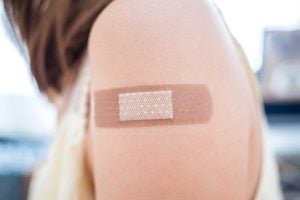
“Bandages make a scrape heal slower”
“When you have a scrape or surgery, people think they have to dry out a wound, but it is best to keep a scrape or wound moist and covered for faster healing.” —Bruce Katz, MD, founder of JuvaSkin
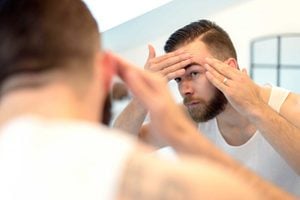
“I’m over 30, so my acne days are over”
“Everyone can get acne at any age, thanks to hormones going into overdrive during such life phases as pregnancy and menopause, or because of factors like stress or nutrition.” —Ava Shamban, MD, celebrity dermatologist.

“My skin is so oily, I need to wash it more”
“Washing your face any more than twice a day can dry out the skin, causing it to produce more oil to compensate. Instead, scrub safely using a gentle electric brush. It helps remove makeup and helps your cleanser work better. Steer clear of the coarse ones, which can cause a breakout.” —Rebecca Kazin, MD, of the Washington Institute of Dermatologic Laser Surgery and the Johns Hopkins Department of Dermatology
(Here’s a super simple morning and nighttime skincare routine.)
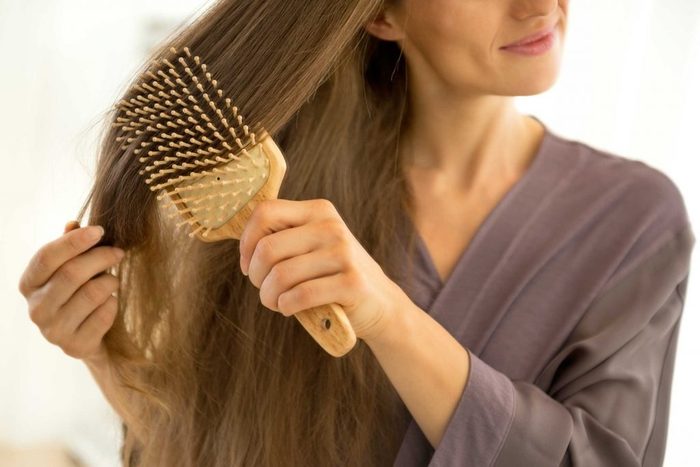
“Brushing my hair 100 times will give me long, shiny locks”
“Don’t believe the old wives’ tale; you don’t need 100 brush strokes a day for healthy hair! Quite the opposite: Excessive brushing can ruffle the hair cuticle and cause breakage.” —Rebecca Kazin, MD.
(Psst: See the hair mistakes giving you split ends.)
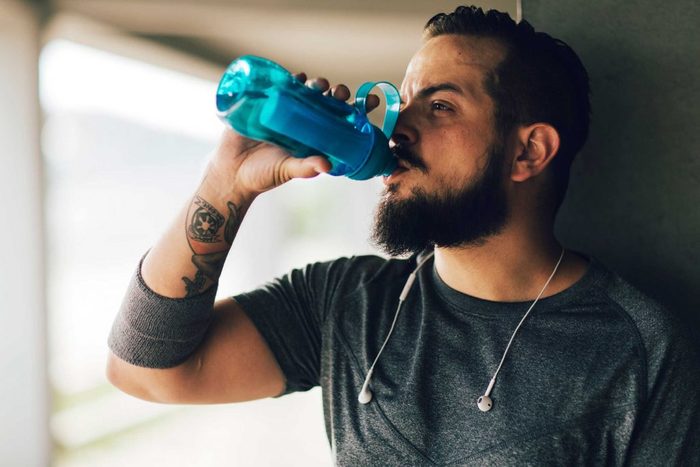
“Drinking a ton of water will give me glowing skin”
“Hydration is important to skin health but drinking too much just leads to running to the bathroom. In extreme cases, excessive water drinking can lead to a condition called hyponatremia, which causes low sodium levels and can even lead to death. The National Institute of Medicine advises the average adult man to consume about 3 liters (13 cups) of fluids daily. Women need about 2.2 liters (about 9 cups) daily. The fluid doesn’t have to be water, or even come from liquid, as many foods have high water content. Healthy people have a mechanism by which they regulate their electrolytes and know when to drink. This mechanism results in the sensation of thirst. The best advice for drinking: let thirst be your guide!” —Fayne Frey, MD, dermatologist and founder of FryFace.
(See if you’re drinking too much water.)
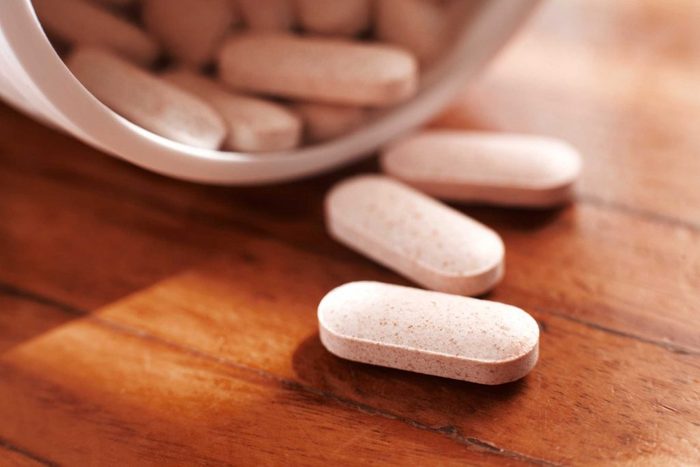
“I need special vitamins for my skin”
“The multi-billion-dollar vitamin industry wants consumers to believe that hair and skin supplements can replace a well-balanced diet, but science suggests otherwise. Some vitamins may even be harmful. A 2017 study in the Journal of Clinical Oncology involving more than 77,000 people found that men taking certain vitamin B supplements are at higher risk of developing lung cancer, especially men who smoke. The best advice is to eat a nutritious well-balanced diet of fruits, vegetables, lean protein, whole grains, and legumes, and avoid highly processed foods.” —Fayne Frey, MD.
(Learn more about collagen supplements in Canada.)
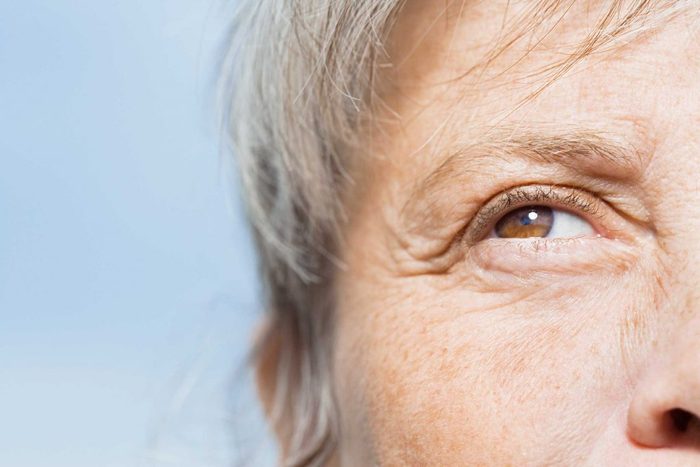
“Anti-wrinkle creams rid of wrinkles”
“Despite the claims on many bottles, the truth is that science has yet to find a single ingredient or product that can slow or reverse the aging process. The overwhelming majority of anti-aging creams, toning creams, firming creams, anti-wrinkle creams, eye creams, and night creams are formulated to increase the water content of skin thereby temporarily reducing the appearance of fine lines and wrinkles.” —Fayne Frey, MD
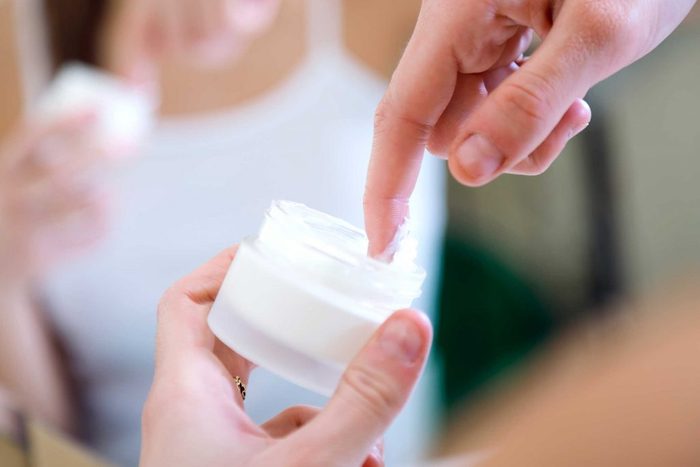
“I should skip moisturizer if I have acne”
“Although it is important to use a non-comedogenic product (one that won’t clog your pores) if you are acne-prone, dry skin causes inflammation that can result in more acne flares. A healthy, hydrated skin barrier is important in keeping skin acne free.” —Dina D. Strachan, MD, director of Aglow Dermatology in New York City
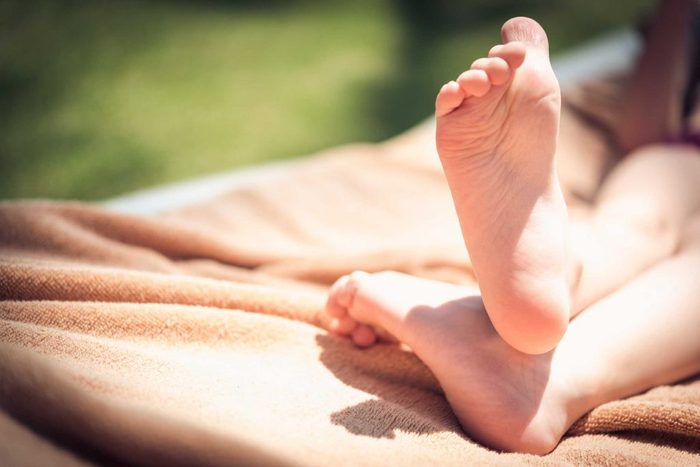
“I already damaged my skin too much as a kid, it’s pointless to start wearing sunscreen now”
“This is definitely not true. It’s never too late to start wearing sunscreen and protecting your skin from the cumulative damage that can lead to skin cancer and premature skin aging.” —Ashley Magovern, MD.
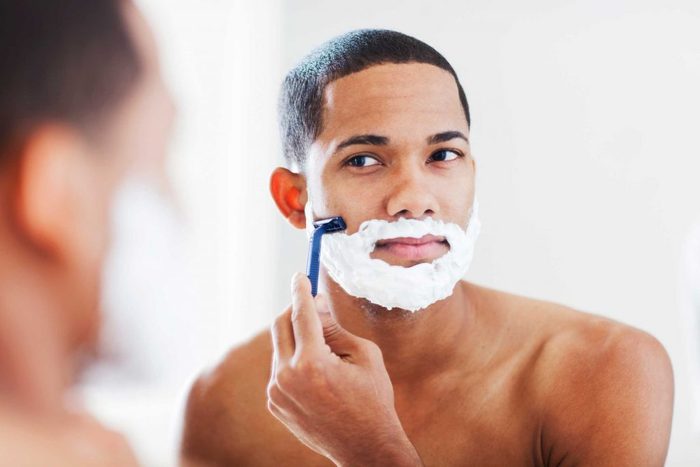
“Shaving hair will only make it grow back thicker”
“I assure you that it does not. A natural uncut hair has a tapered, wispy tip that all new natural hairs have. The thickness of the hair shaft below the tip is much larger. When you decide to shave or cut that hair at the surface, in a few days the hair is going to continue to grow, and when it does, the tip is rectangular so it appears coarser than the thin wispy tip that you originally had. But the hair shaft is exactly the same thickness as before. If you shave regularly, you are not causing those hairs to get any thicker, and shaving really is a very easy and convenient form of controlling unwanted hair.” —Neal Schultz, MD
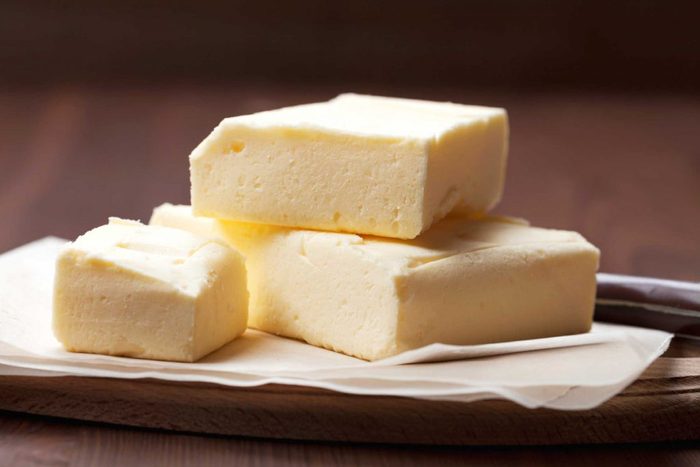
“Putting butter on a burn will stop the pain”
“The truth is butter keeps the heat in the wound and will cause additional damage. A burn should initially be rinsed with cold water for comfort and to stop the spread of damage.” —Diane Madfes, MD, dermatologist and clinical instructor at Mt. Sinai Medical Center
(Here are some home remedies for burns.)
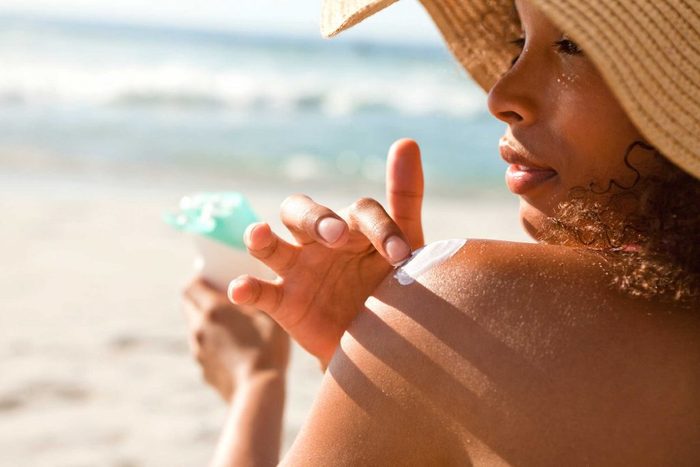
“I have dark skin so I don’t need to wear sunscreen”
“Even though darker skin may take longer to burn and may not show it as clearly, I have found skin cancer and sun damage in darkly pigmented people as well as light-skinned people. Everyone needs to wear sunscreen.” —Debra Jaliman, MD, author of Skin Rules and assistant professor of dermatology at the Icahn School of Medicine at Mount Sinai.
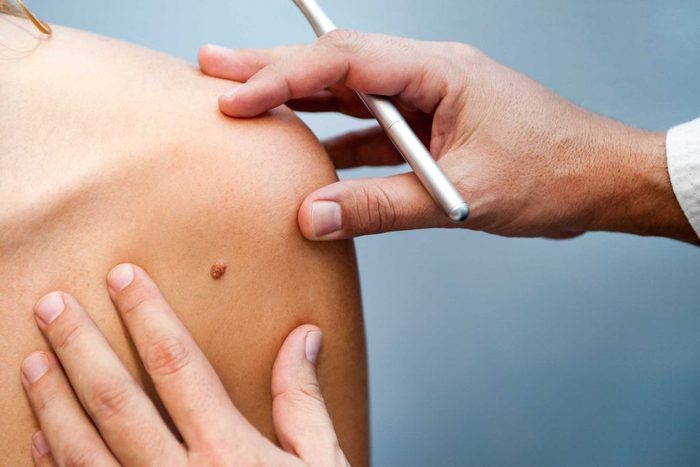
“I can remove this mole myself”
“I’ve had patients who came in after using a cream off the Internet to remove unwanted moles. It is a bad idea to remove ‘moles’ when you do not know what they are. While many moles or growths are benign, some are or can become cancerous and should not be treated at home with an over-the-counter cream.” —Brian Zelickson, MD, dermatologist and founder of MD Complete Skincare.
(Here’s how to get rid of those bright red “moles.”)
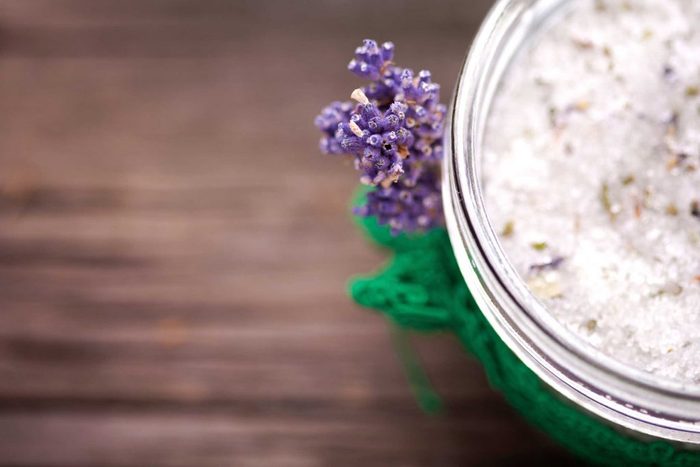
“Natural skin products are better for you”
“The word ‘natural’ just means the skincare product is made from ingredients that originate from plant flowers, roots, seeds, or leaves. There is no evidence that shows botanicals are better than synthetic ingredients but there is plenty of research that indicates that many so-called natural ingredients are sensitizers and cause rashes and other allergic reactions. Let me remind you: poison ivy is 100 percent ‘natural.’” —Fayne Frey, MD
(Check out our favourite natural deodorants.)
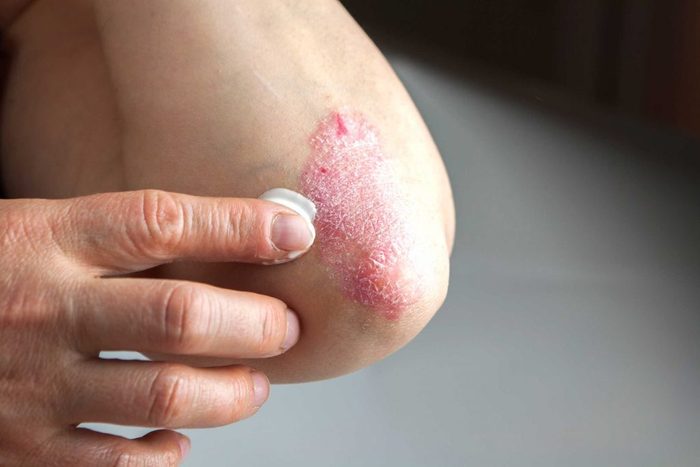
“Don’t sit by me, I don’t want to catch your psoriasis”
“Psoriasis is an autoimmune disease that causes raised, red, scaly patches to appear on the skin. While the cause is still unknown, it is related to the immune system and a genetic predisposition. It is not caused by an infectious agent, and it cannot be transmitted to others via contact.” —Tien Nguyen, MD, dermatologist at Orange Coast Memorial Medical Center in Fountain Valley, CA.
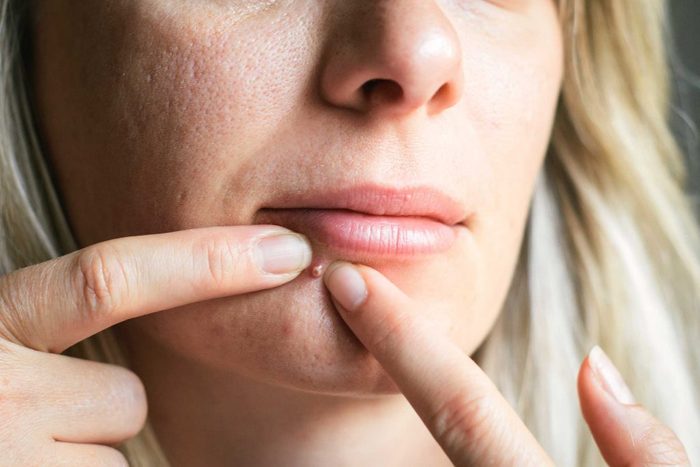
“I can treat my zits now just like I did when I was a teen”
“Adult acne is quite different than adolescent acne. Mature skin tends to be drier so you need to avoid blasting skin with harsh products that will further dehydrate it. Skip antibacterial soap, as it can dry skin and lead to itching and redness. Instead, use a gentle cleanser, preferably one with salicylic acid. Most prescription acne medications are very irritating and drying and therefore aren’t as tolerated in adults. Look for products containing retinoids and chemical peels as they effectively address acne and aging at the same time.” —Rebecca Kazin, MD. Next, find out 13 things dermatologists won’t tell you.
Medically reviewed by Elizabeth Bahar Houshmand, MD
Next, check out the daily habits of people who never get acne.
